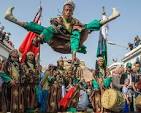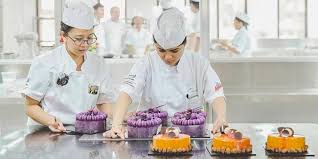The Rich Tapestry of Moroccan Culture and Traditions
Morocco, a land where the past seamlessly blends with the present, is renowned for its vibrant culture and age-old traditions that have stood the test of time. Let’s delve into the enchanting world of Moroccan customs that continue to captivate visitors from around the globe.
Diverse Influences
At the crossroads of Africa, Europe, and the Middle East, Morocco’s culture is a mosaic of diverse influences. From the indigenous Berber tribes to Arab conquerors and European colonisers, each group has left its mark on Moroccan customs, language, architecture, and cuisine.
The Art of Hospitality
In Morocco, hospitality is not just a tradition but a way of life. Visitors are welcomed with open arms and treated to mint tea—a symbol of friendship and respect. Sharing meals with family and friends is a cornerstone of Moroccan culture, where every dish tells a story of heritage and hospitality.
Majestic Architecture
The architectural marvels of Morocco reflect its rich history and cultural diversity. From the intricate tile work of Fes to the majestic kasbahs of the Atlas Mountains, each building tells a tale of craftsmanship and tradition passed down through generations.
Celebrating Festivals
Throughout the year, Moroccans come together to celebrate a myriad of festivals that showcase their cultural heritage. From the colourful processions of Eid al-Fitr to the rhythmic beats of Gnawa music at the Essaouira Festival, these events offer a glimpse into Morocco’s soulful traditions.
The Artistry of Craftsmanship
Morocco is renowned for its exquisite handicrafts that reflect centuries-old techniques passed down from master artisans. From intricate zellige tilework to plush Berber carpets and vibrant textiles, each piece embodies the skill and creativity embedded in Moroccan culture.
Sacred Traditions
Religion plays a central role in Moroccan life, with Islam shaping many aspects of daily routines and social customs. From the call to prayer echoing through ancient medinas to communal gatherings during Ramadan, these sacred traditions bind Moroccans in spiritual unity.
Preserving Heritage
As Morocco embraces modernity, efforts are underway to preserve its cultural heritage for future generations. Initiatives such as UNESCO World Heritage sites safeguard ancient medinas like Marrakech and historic monuments such as Volubilis, ensuring that Morocco’s legacy endures.
A Living Tapestry
Moroccan culture is not static but a living tapestry that weaves together past traditions with contemporary influences. As you explore this captivating country, immerse yourself in its vibrant souks, savour its aromatic cuisine, and embrace the warmth of its people—a journey that will leave an indelible mark on your soul.
Embracing Moroccan Culture: 8 Essential Tips for Visitors
- When visiting someone’s home, it is customary to bring a small gift like pastries or fruit.
- Greetings are an important part of Moroccan culture. Handshakes are common between people of the same gender, while cheek kisses are common between people of opposite genders.
- Respect local customs and dress modestly, especially when visiting religious sites or rural areas.
- Tea plays a significant role in Moroccan culture. Accepting a cup of tea is a sign of hospitality and friendship.
- Friday is considered a holy day in Morocco, so some businesses may be closed during Friday prayers.
- Haggling is expected in markets and souks. Don’t be afraid to negotiate prices when shopping.
- Try traditional Moroccan cuisine like tagine, couscous, and mint tea to experience the local flavours.
- Learn a few basic phrases in Arabic or French to communicate with locals. They will appreciate your effort.
When visiting someone’s home, it is customary to bring a small gift like pastries or fruit.
When visiting someone’s home in Morocco, it is a cherished tradition to present a small gift as a gesture of goodwill and appreciation. Whether it’s a box of traditional pastries or a basket of fresh fruits, these offerings symbolise respect for the host and demonstrate a spirit of generosity that is deeply ingrained in Moroccan culture. By adhering to this custom, visitors not only show their gratitude but also strengthen the bonds of hospitality that are at the heart of Moroccan social interactions.
Greetings are an important part of Moroccan culture. Handshakes are common between people of the same gender, while cheek kisses are common between people of opposite genders.
Greetings play a significant role in Moroccan culture, reflecting the country’s emphasis on respect and warmth in social interactions. Handshakes are a customary way of greeting between individuals of the same gender, symbolising friendship and camaraderie. Conversely, cheek kisses are a prevalent form of greeting between individuals of opposite genders, signifying affection and hospitality. These traditional gestures not only convey goodwill but also demonstrate the importance of personal connections and mutual respect in Moroccan society.
Respect local customs and dress modestly, especially when visiting religious sites or rural areas.
When exploring the rich tapestry of Moroccan culture and traditions, it is essential to respect local customs by dressing modestly, particularly when visiting religious sites or rural areas. Adhering to traditional dress codes not only shows reverence for the country’s heritage but also demonstrates a deep appreciation for the values and beliefs held dear by Moroccans. By embracing modest attire, visitors can engage with the local community in a respectful manner and forge meaningful connections that transcend cultural boundaries.
Tea plays a significant role in Moroccan culture. Accepting a cup of tea is a sign of hospitality and friendship.
In Moroccan culture and traditions, the act of sharing tea holds profound significance. Embraced as a symbol of warmth and welcome, accepting a cup of tea is not merely a gesture of hospitality but a heartfelt expression of friendship and respect. The ritual of preparing and serving tea is steeped in tradition, where every sip fosters connections and strengthens bonds between individuals, embodying the essence of Moroccan hospitality at its finest.
Friday is considered a holy day in Morocco, so some businesses may be closed during Friday prayers.
In Morocco, Friday holds a special significance as a holy day, observed with reverence and devotion. It is customary for businesses to adjust their schedules during Friday prayers, with some establishments choosing to close their doors to allow employees and customers the opportunity to participate in this sacred ritual. This cultural practice reflects the importance placed on religious observance and community cohesion in Moroccan society, inviting visitors to appreciate and respect the local traditions that shape daily life in this enchanting country.
Haggling is expected in markets and souks. Don’t be afraid to negotiate prices when shopping.
In Moroccan culture and traditions, haggling is a common practice in markets and souks. Visitors are encouraged to embrace this cultural norm and engage in friendly negotiations when making purchases. Don’t hesitate to discuss prices with vendors as it is not only expected but also adds an element of excitement to the shopping experience, allowing you to immerse yourself in the vibrant atmosphere of Moroccan marketplaces.
Try traditional Moroccan cuisine like tagine, couscous, and mint tea to experience the local flavours.
To truly immerse yourself in Moroccan culture and traditions, indulge in the culinary delights that define the essence of this vibrant country. Savour iconic dishes such as tagine and couscous, each bursting with a symphony of spices and textures that reflect Morocco’s diverse influences. Wash it all down with a refreshing glass of mint tea, a symbol of hospitality and camaraderie in Moroccan society. By trying these traditional delicacies, you not only tantalise your taste buds but also embark on a sensory journey through the heart of Moroccan gastronomy.
Learn a few basic phrases in Arabic or French to communicate with locals. They will appreciate your effort.
When exploring Moroccan culture and traditions, a valuable tip is to learn a few basic phrases in Arabic or French to facilitate communication with locals. Making the effort to greet, ask for directions, or express gratitude in their language shows respect and appreciation for their culture. Moroccans will warmly acknowledge your attempts to connect with them, fostering meaningful interactions and enhancing your cultural experience in this captivating country.




